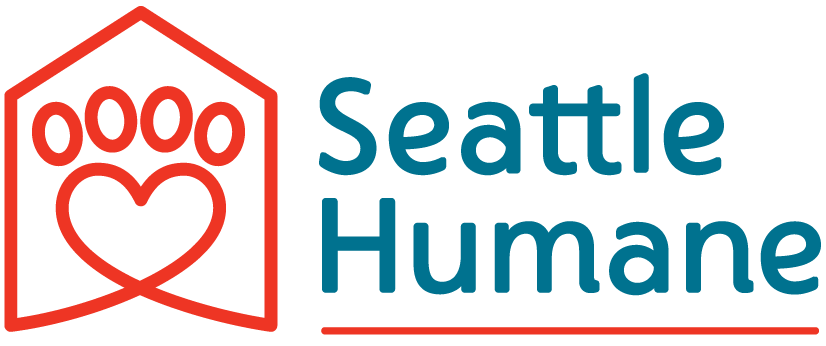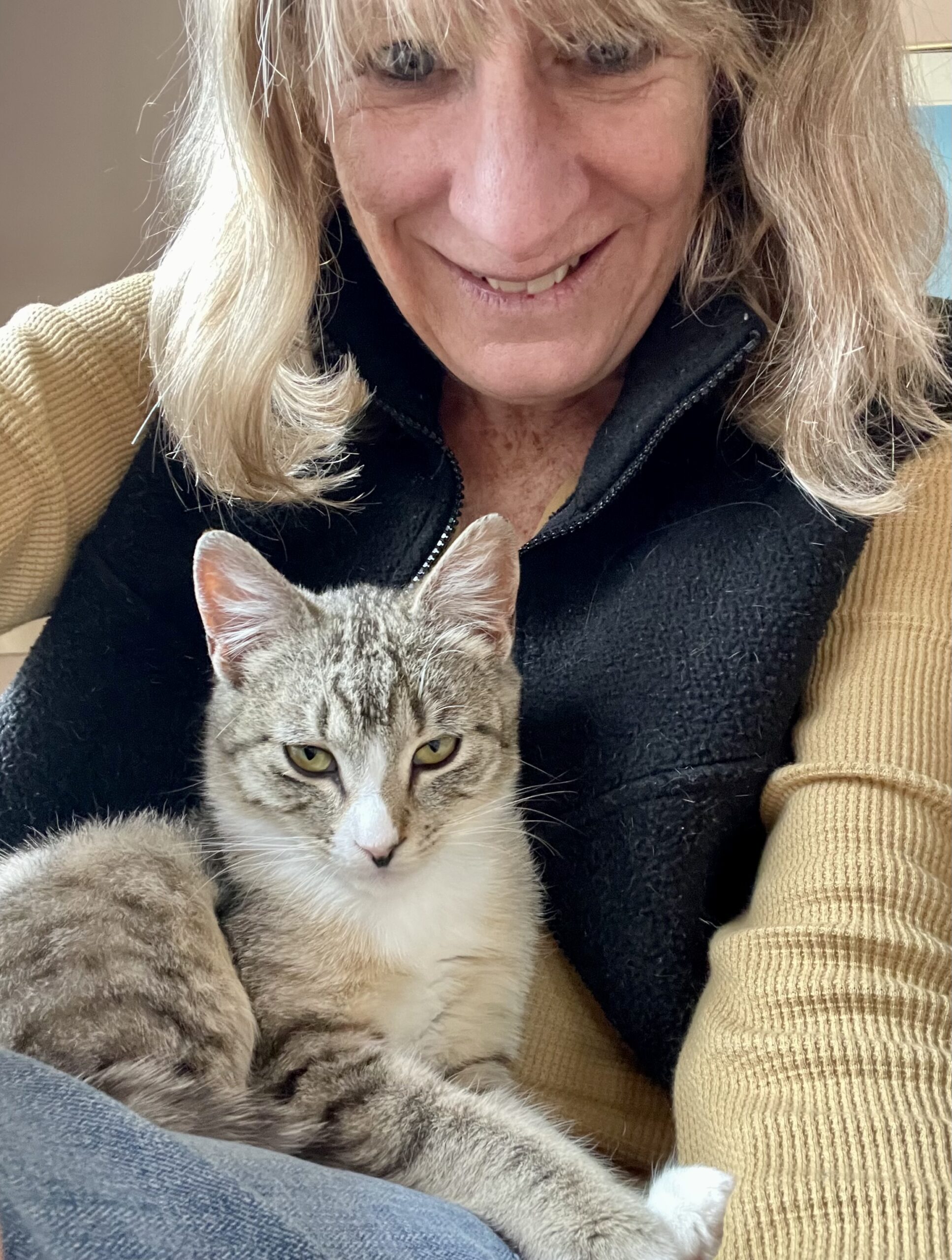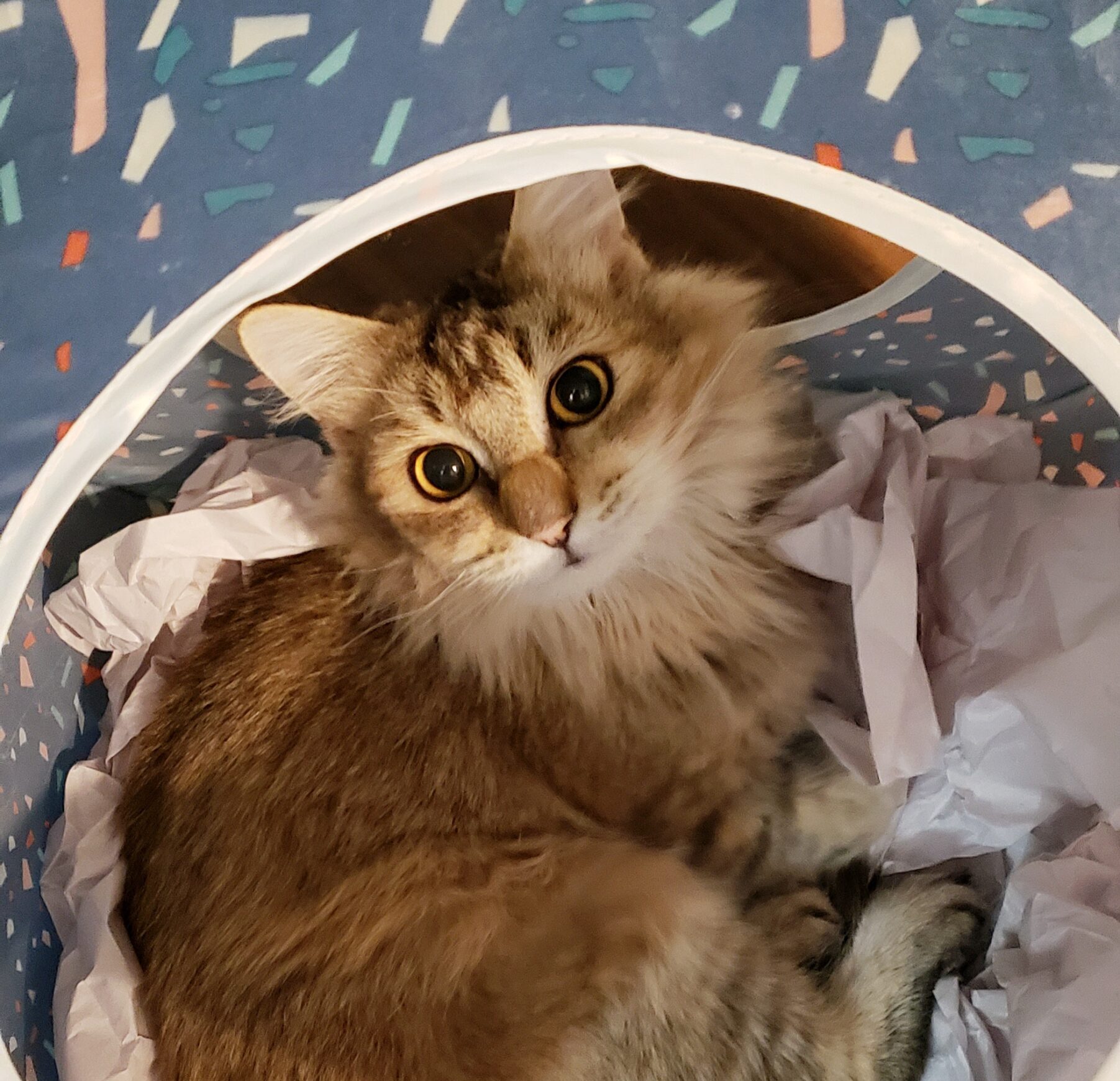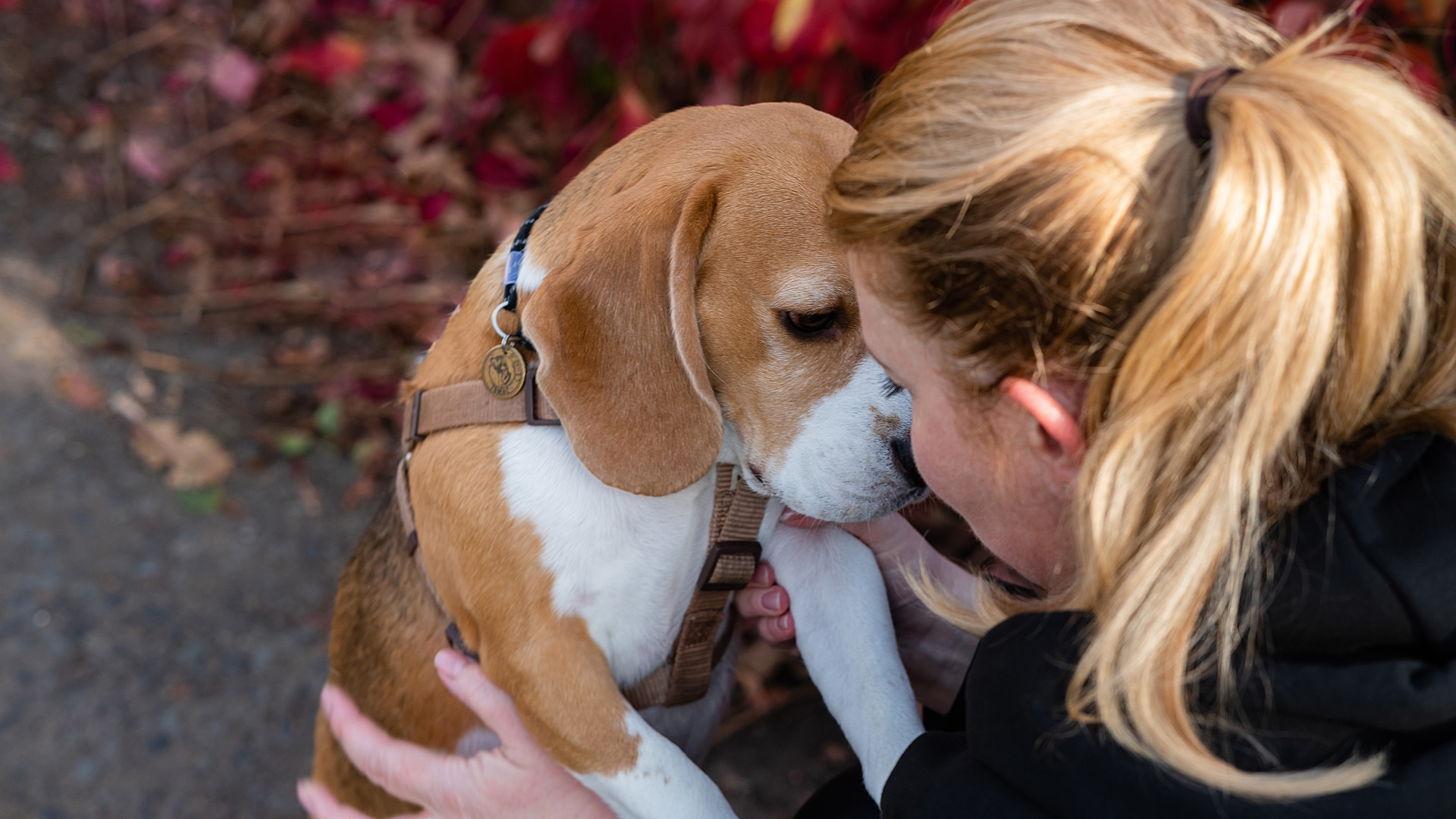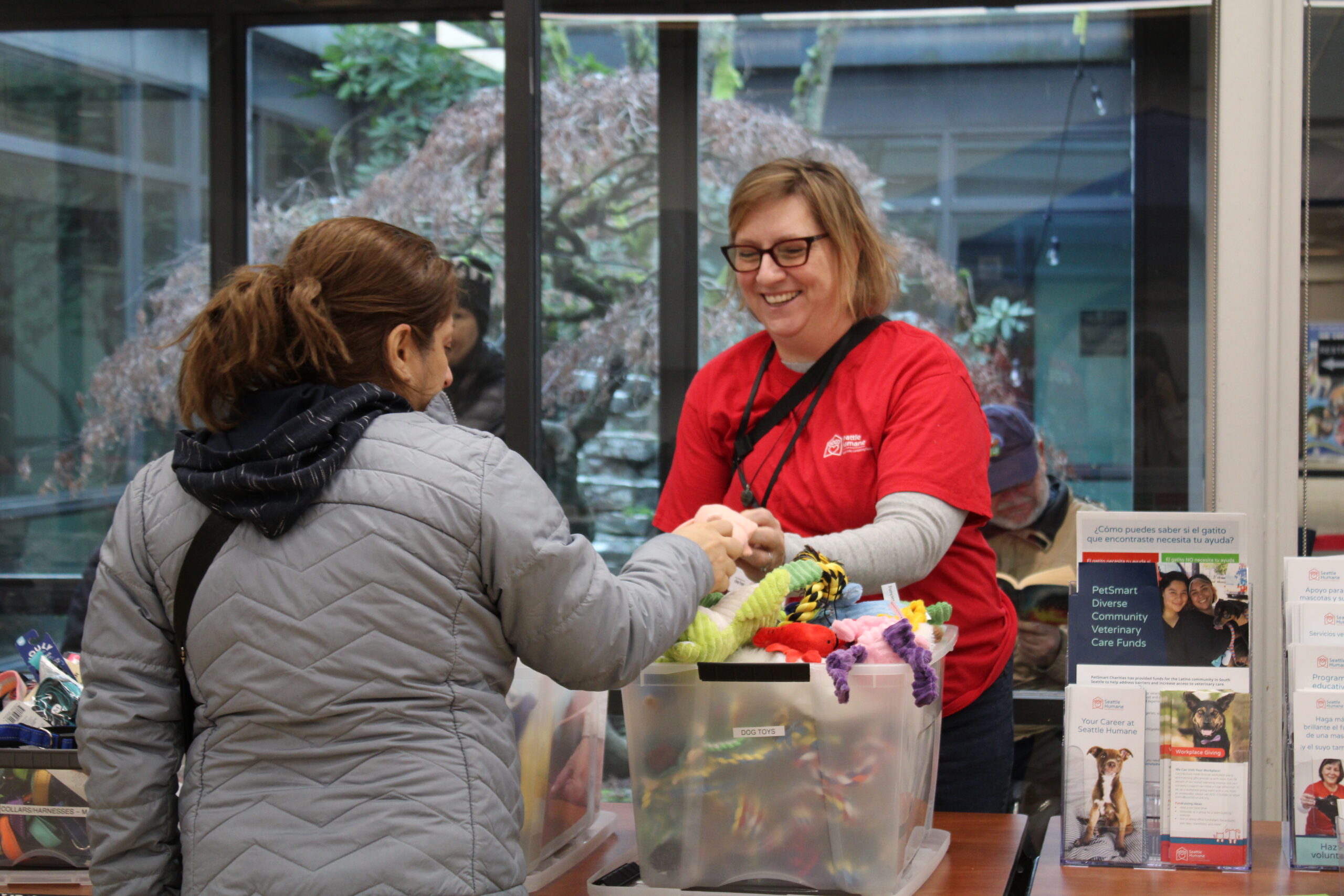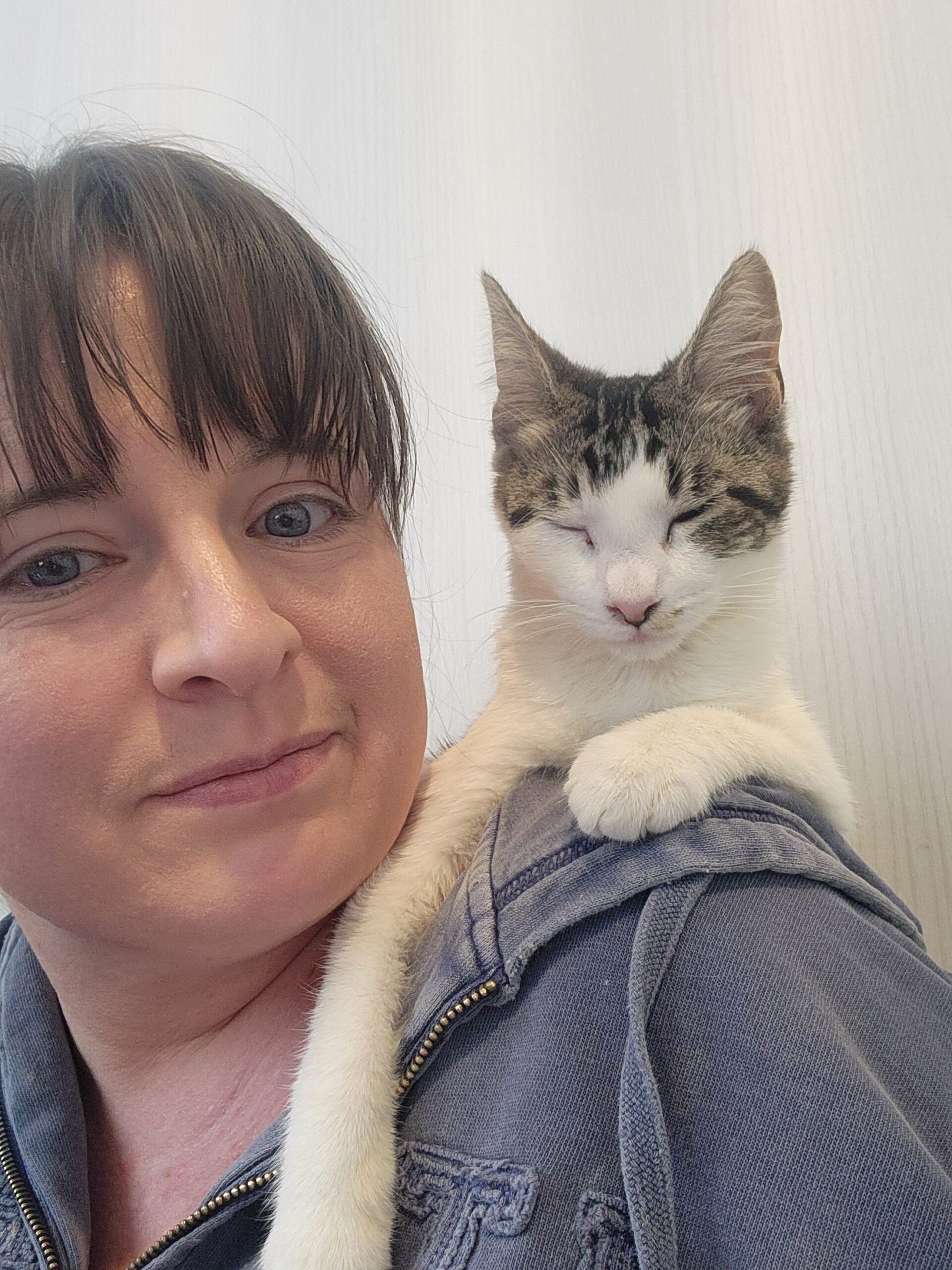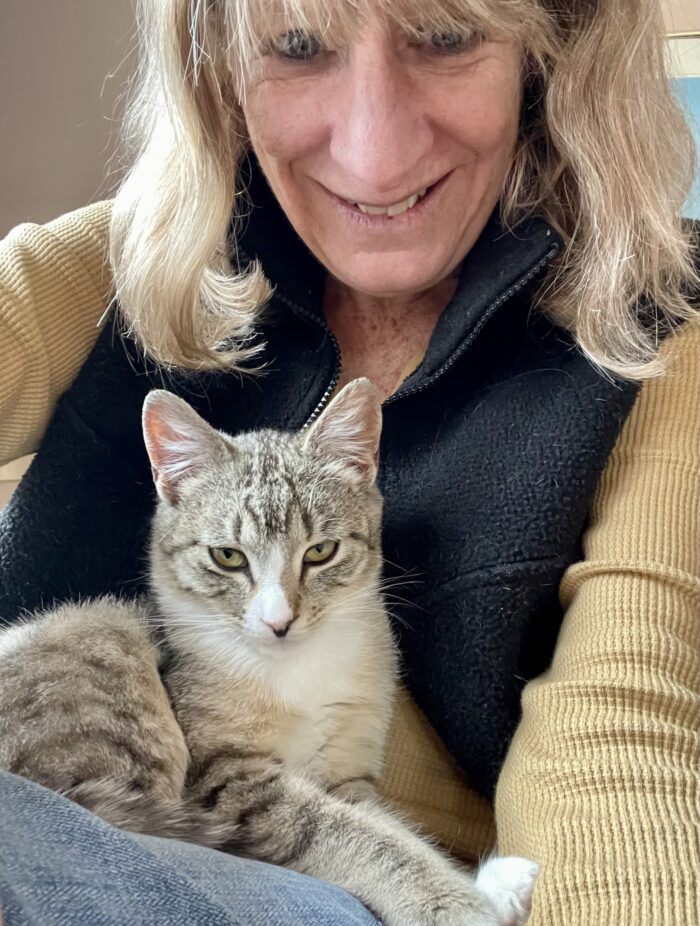
To honor the memory of her treasured companions, Kim Borden turned to fostering to give pets a new lease on life. A retired elementary school counselor/psychologist, Kim brings her calm and patient approach to fostering pets in need. She opens her heart and home to cats and dogs who struggle in the shelter environment and provides them with the care and attention they need to let their true personalities blossom. We are grateful to have Kim as part of our team of volunteers, helping these pets along on their journey to loving homes. Thank you, Kim!
Read on to learn more about the foster pet who left the greatest impression on Kim, how Kim’s interest in animal behavior proves beneficial with foster pets who need a little extra guidance, as well as Kim’s advice to those who are considering becoming foster parents with Seattle Humane.
Q. Tell me about one of your favorite Seattle Humane foster pets.
A. I have a special place in my heart for all the animals I have fostered, but the most memorable foster was a dog named Robin. I was new to fostering dogs with separation anxiety and came home one day to find my kitchen destroyed. She had knocked everything off the counters and had gotten into all the cabinets. Chewed food, appliances and sticky chicken broth covered the floor. After that, I removed everything from the counters and cabinets, and slowly over time she started to trust me (and leave the kitchen alone). A few months later a potential adopter came to the house to meet Robin. She was the perfect dog during the visit, and the next day the adoption became official. I was so proud of her! I still think of Robin and smile every time I look at the dent in my toaster.
Q. What inspired you to foster pets with Seattle Humane?
A. I adopted my cat from Seattle Humane and was impressed with what I saw there. I have also talked with people who have fostered animals through Seattle Humane and, listening to their stories, I knew I wanted to be a part of that experience as well.
Q. What is the most rewarding aspect of fostering?
A. The absolute best part of fostering, for me, is seeing the progress the animals make and knowing you are a part of that process, whether it is helping an ill animal heal or providing stability and love to a frightened and anxious animal.
Q. When/how did your love of animals begin?
A. As early as I can remember, I have always had a pet. It started with fish, then turtles, a rabbit, gerbils, hamsters, and later dogs and cats. I can’t imagine my home without an animal.
Q. Are there any experiences that you feel helped prepare you for fostering (previous jobs, internships, schooling, resident pets, etc.)?
A. I recently retired from a career as an elementary school counselor/psychologist. I’ve noticed that animals are similar to children; when they are anxious, angry, or frightened, using a calm voice, and providing some space and a lot of TLC can make a difference in their behavior.
Q. Do you have any pets of your own?
A. A few years ago, both my dog and cat passed away. It was after this that I decided to foster. Now, I try to always have a foster animal when I’m home and consider them “my pets” for the short time they are with me.
Q. Besides fostering, tell us about your hobbies. Do you have any hidden talents we might not know about?
A. It’s not really a hobby, but I’m interested in animal behavior, especially animal intelligence. I am fascinated by research that tries to ascertain who is the smarter species, dogs or cats. I waver back and forth but this month, based on my observational data, I am leaning toward cats. My last foster cat, who weighed over 14 pounds, opened a kitchen cabinet, avoided all breakables, settled inside and then closed the door behind him. Smart feline!
Q. What advice would you give to others who are thinking about fostering a pet?
A. For me, the hardest part of fostering is having to say goodbye. It’s even harder when I take the animal for a vet visit, and then get the call that they are cleared for adoption and won’t be coming back home with me. My advice is to turn around and foster another animal as quickly as you can. Putting my energy into a new foster helps me forget about how much I miss the one I just lost.
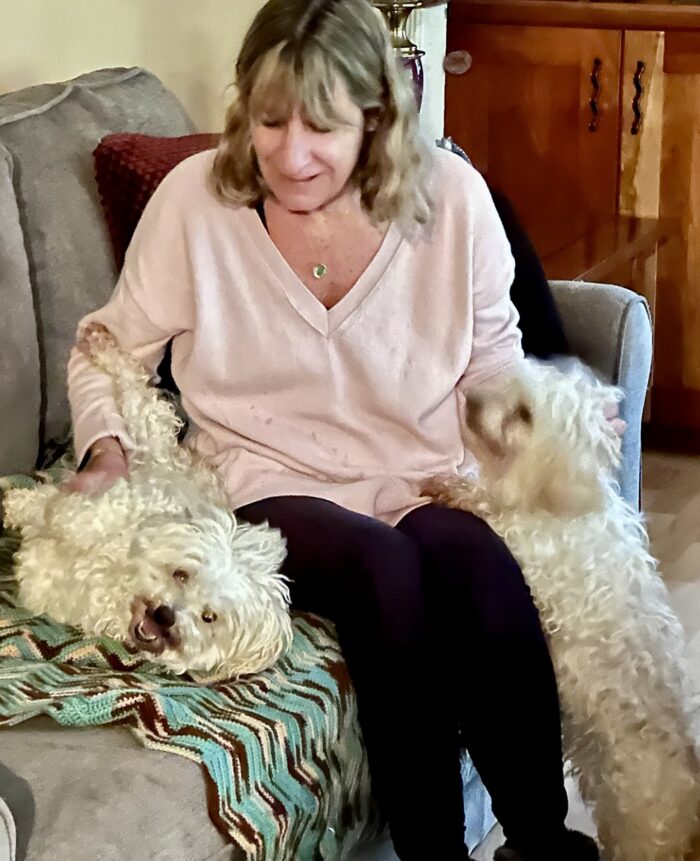
Make a Difference
Just like Kim, you can make a difference in the lives of pets at Seattle Humane. Explore volunteer opportunities to help pets at our Bellevue campus and in the community.
